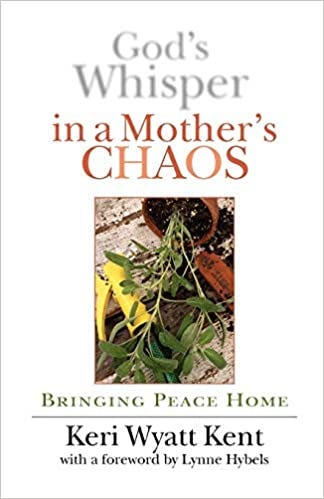Hello, writers!
Why do we write?
Writing can pry open our minds or souls, inviting us to discover what it is we actually think and feel.
Writing, for its own sake, is a worthwhile and even holy endeavor. Some writing, it would seem, benefits solely the writer. It provides a means of self-examination and reflection, a joyful exercise in wordplay and expression.
Some writers write only for themselves, finding beauty and value in the creative process. Which is wonderful.
(Photo by George Milton: https://www.pexels.com/)
But many writers aspire to publish their work. And if that is the case, the writer must widen the circle. They’re no longer talking to themselves but inviting others into the conversation.
They are now writing for readers.
When I mentor writers, or come alongside would-be authors as a cowriter, I ask them first to complete the Start Your Powerful Story Workbook. The workbook asks a series of probing questions, asking the writer to consider their message, their reader, their own expertise, and the other titles that address the same topic. (If you’d like a free copy of this workbook, leave a comment on this post, and I’ll send you one.)
For some writers, completing the workbook invites them, for the first time, to think about a specific reader. They’ve simply never considered writing as a conversation with their “target audience.”
Beginning writers often assume the audience for their work is “everyone who can read.” They also think their book is about them. Both are simply not the case. A book is a product, and it will be marketed to specific people, just like other products. Writing for publication means writing for a target audience. It’s not just about you, it’s about the reader.
The workbook asks writers:
· Who absolutely needs to read your book and is your ideal audience? Think of your target reader as the bull’s eye of the target. (Of course, other people will read the book as well, but they are in the outer rings of the target.)
· Describe your target reader demographically. Be very specific. i.e., a college-educated man between 35-50 years old, married, works in middle management, has two kids, Christian, etc.
· What keeps this target reader up at night? What does he or she really worry about or want?
· What problem will your book solve for that reader?
· What features or benefits will your book offer to the reader?
· What will readers learn or receive from the book?
· What is the message or messages you’d like readers to come away with? What do you want them to know or do as a result?
Why identify a target audience?
A book is a conversation between you, the writer, and your reader. You want to tell them a story to entertain them or inspire them. Or maybe you’re writing a non-fiction book to inform them or improve their life with advice or tips on a specific topic.
An academic book on physics, for example, is created for a different audience than a Young Adult (YA) novel about a teen romance. Knowing who you’re writing to will influence word choice, plot points, pacing, style, and topics included.
Although your target audience will be very specific, that doesn’t mean others won’t read your book. But writing to a specific person will keep your writing focused. It becomes easier to know how to organize your ideas and decide what to leave in, and what to leave out.
How do you identify a target audience?
In non-fiction, we’re often writing a book that solves a problem, or at least provides some helpful advice or strategies (think of books on topics like losing weight, de-cluttering your home, or getting ahead in your career). Or we might be writing to just entertain and inform.
My first book, God’s Whisper in a Mother’s Chaos, was part spiritual memoir, part parenting book. I wrote it when my kids were one and three years old. (At the time, most mom books were written by women whose kids were already grown and gone.) InterVarsity Press published it and it has been in print for more than two decades. It’s short (you try writing with two toddlers underfoot!). It is full of stories about my own “chaos” of having two little ones during a season of upheaval in our family.
The book came out of my own question as a young mom: how do I make time for my spiritual life when I am caring for small children? What happened to my orderly life, in which I had time for God, for exercise, for work, for fun, for sleep???
But the book also offered more depth than most “mom books” of the time, as I quoted C.S. Lewis and Dietrich Bonhoeffer and the like. It was written from the trenches with my kids playing in the same room where I wrote. It was written from the place in my soul that longed to talk about something other than potty training (with other moms) or the latest Barney the Dinosaur episode (with my kids).
So my target reader was a mom of young kids asking those same questions from those same trenches. Specially, a married Christian mom, age 25-35, who worked a part-time job and volunteered at her church but wanted more. A woman longing to know she wasn’t alone in feeling overwhelmed, who was hungry for a book that wasn’t fluffy and offered her real ways to connect with God in the midst of chaotic seasons.
As one publisher’s rejection letter said, “We can’t figure out the audience—it seems like it’s for moms, but then it also seems like it’s for intellectual readers.” (As if those two categories were mutually exclusive!!)
Too bad for that publisher (they later published two of my books, so we’re cool.) But thanks to the folks at InterVarsity Press who believed “moms” and “intellectuals” could overlap, the book eventually found its target readers. I was speaking at a parenting conference right after God’s Whisper came out, and a mom stopped me in the hallway. “Your book changed my life,” she said, with tears in her eyes.
That, for me, is the goal. To write books that connect deeply with readers. It’s why I write. God’s Whisper helped a generation of young moms to know God was with them in the chaos of parenting. It gave them hope.
Want a copy of the Start Your Powerful Story Workbook? Leave a comment below.
Want to read God’s Whisper in a Mother’s Chaos? It’s still available on amazon or at ivp.com





Hey Kerri! I'm starting to work with writers and would love to see how your powerful story workbook might help them. Thanks for all the resources and support! XOXO Lauren
Hello Kerri, I've been in Susy's My1YearMemoir group last year. I have my rough draft done and I am beginning to self-edit. I would love your Start Your Powerful Story Workbook. I do have an audience in mind, but I'd like to cover my bases and think more deeply about my audience and my message....Thanks! Debbie